Medicine for Cameroonian Refugees
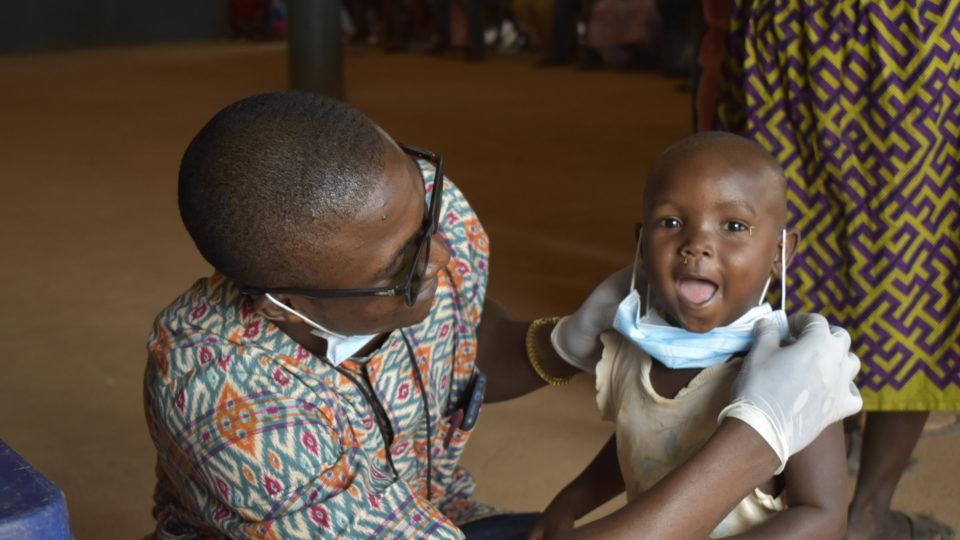
A History of Inequality
The nation of Cameroon has been split between English and French speaking populations since the nation was placed under the dual control of Britain and France following World War I. The country’s longtime president, Paul Biya primarily favors French for civil and bureaucratic functions and diverts resources into French regions. In 2016, the English-speaking regions Northwest and Southwest rose up to protest their continued marginalization.
Escalating tensions led the regions to propose breaking off into their own country, ‘Ambazonia’ which the central government flatly rejected. 2018 saw protests deteriorate into widespread armed conflict between the Cameroon military and networks of local militias. Unfortunately, disproportionate suffering in this violence has fallen upon civilians in the two regions. Amnesty International estimates that over 400 civilians have been killed since fighting broke out with over 100 villages burned.
80% of the people fleeing this violence are women and children.
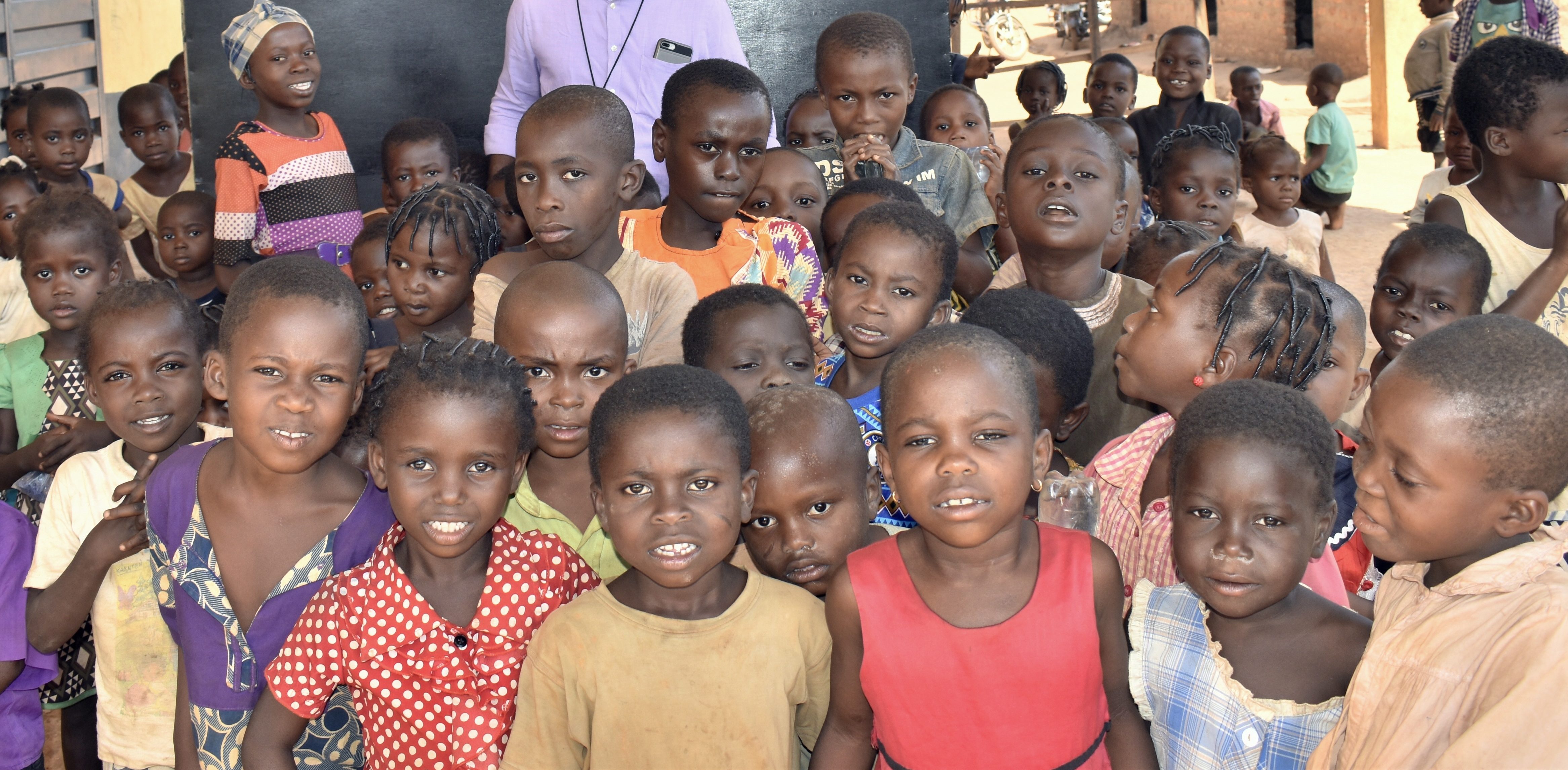
Cameroonian children at the refugee camp in Nigeria
This instability has led to widespread displacement, with over 26,000 civilians fleeing across the border into Nigeria. The refugees have settled in the Nigerian states of Akwa Ibom, Cross River, Benue, and Taraba. They are now struggling to find the resources to survive and start piecing their lives back together. The Nigerian government, in coordination with UNHCR has established camps for the refugees but the services offered are still insufficient.
Partnering for Refugees
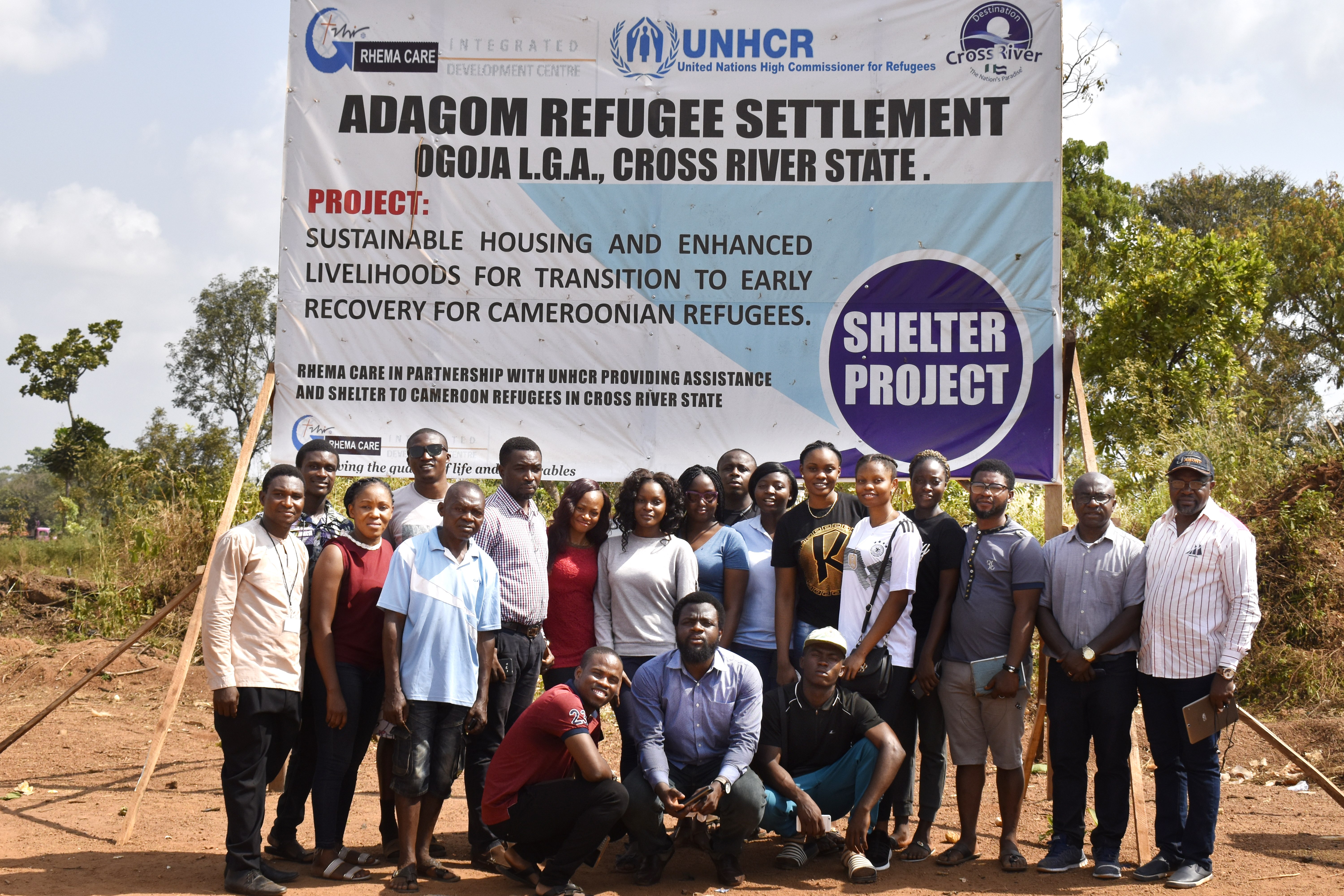
Medical volunteers outside of the Adagom Refugee Camp in Nigeria
In the Fall of 2018, Nissis Vessels Foundation reached out to CMMB to inquire about participation in CMMB’s Medical Donations Program. The organization, in coordination with Raphas Hands Foundation and MECA USA Inc., was putting together plans to send a mission team to treat patients who had fled across the border from Cameroon and settled in the Adagom Refugee camp in Ogoja, Nigeria which is currently home to 6,000 refugees. At the time of their outreach they had 48 volunteers already signed up and planned their trip to take place in the two weeks leading up to Christmas.
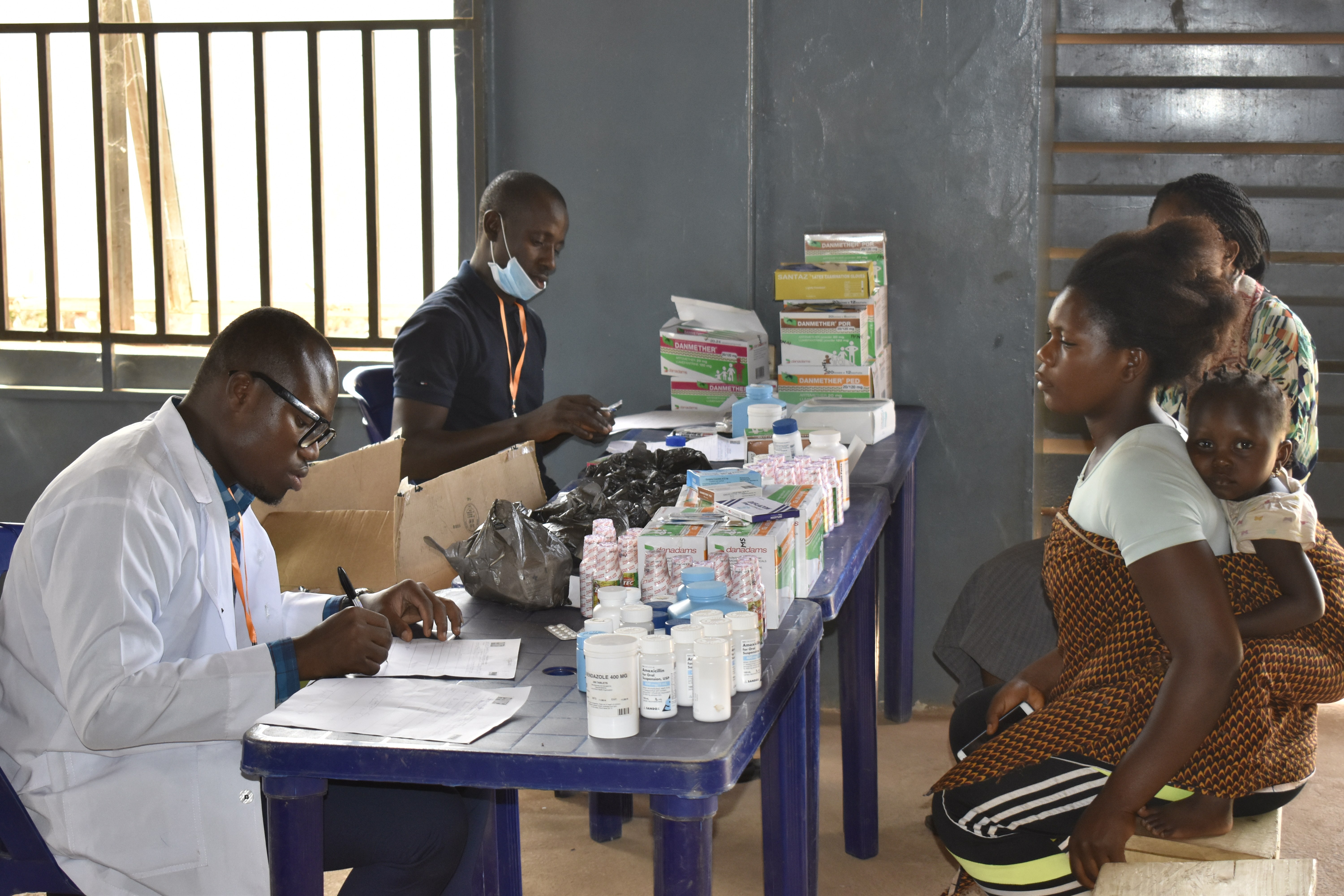
Medical donations from CMMB being distributed to refugee women and children
After reviewing the request and communicating to understand the organization’s logistics, CMMB was able to provide the initiative with a donation worth over $300,000. The shipment contained a variety of medicines including diabetic, anti-hypertensive, immunosuppressive, anti-inflammatory, and antibiotics which the mission team carried with them as they traveled to Nigeria.
Throughout their two-week long trip, the Nissis Vessels team of doctors, nurses, pharmacists, lab technicians, and public health experts consulted over 1,300 patients in the camp, prescribing and dispensing medicine and advising on next steps when necessary. The volunteer surgeons also performed 18 surgeries at the General Hospital of Ogoja. Aside from medical care, the group made a donation of food and scheduled counseling to provide emotional and spiritual support.
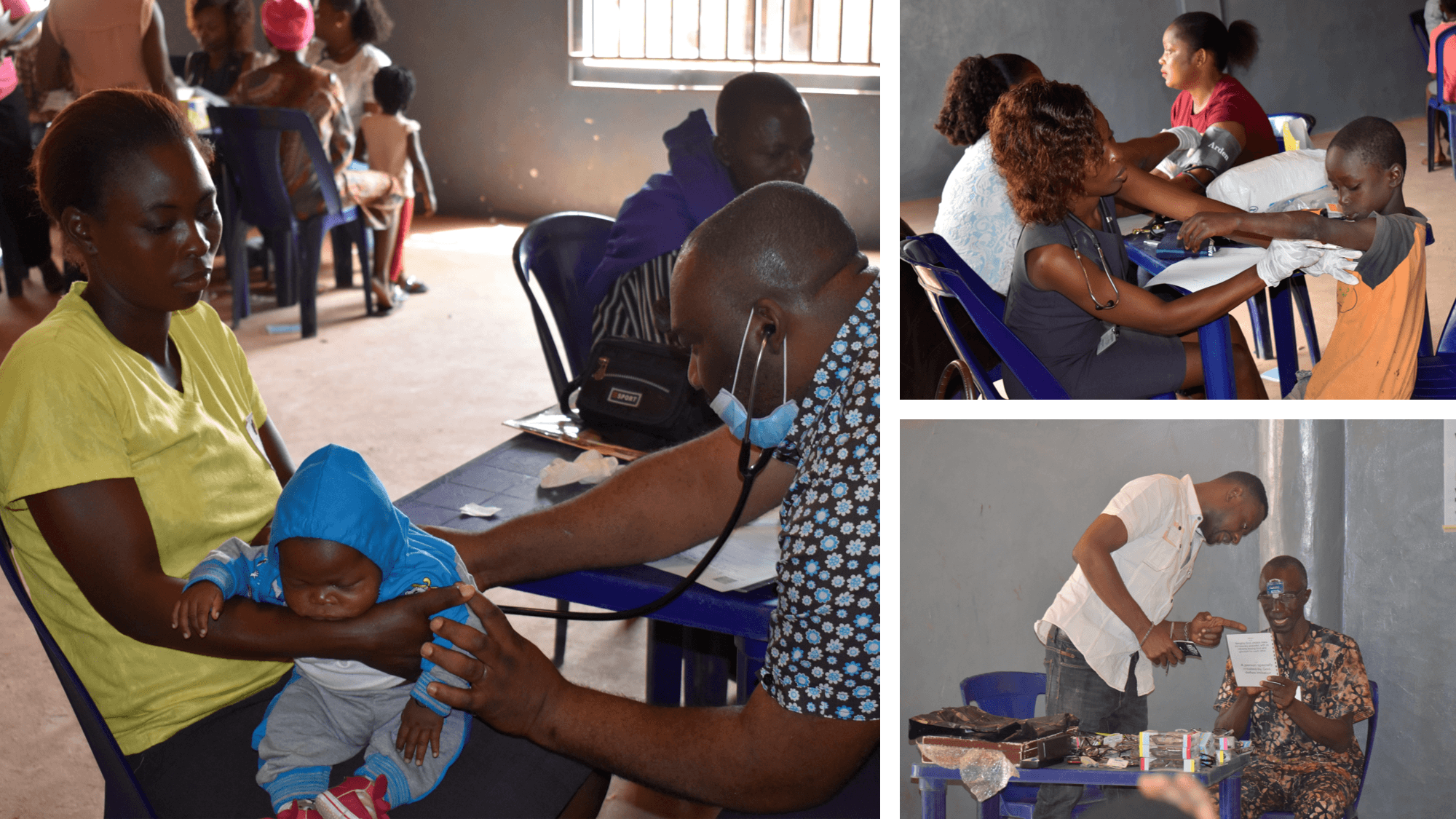
Cameroonian refugees receiving healthcare in the refugee camp
It is unclear what the outcome of this conflict in Cameroon will be, or when these people will be able to return to their homes. However, the work of those on this mission team provided the residents of the Adagom Camp relief, and more importantly reminded them that they are not alone in their struggle.